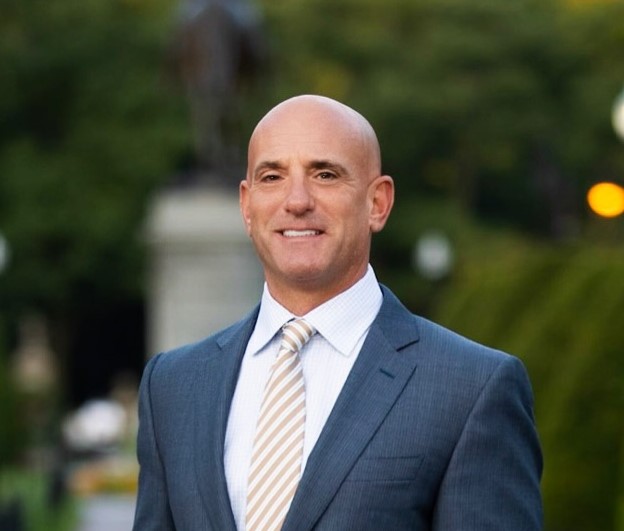
Any conversation about real estate must, by its very nature, account for the status of the banks issuing the mortgages and setting mortgage standards. And any conversation about banks must likewise account for the big players: the heavyweights of the finance industry.
Which brings us to Chase.
J.P. Morgan Chase isn’t just the #1 largest U.S. lender by assets. At $2,622.5 billion, its value is greater than numbers 5 through 10 combined. Needless to say, the financial juggernaut exerts a massive effect on the market. So when Chase introduced new mortgage standards in April of 2020, people stood up and took notice.
But what does it all mean? What kinds of impact has this had so far? And, what’s coming down the road?

What Exactly Happened?
In case you missed it, JPMorgan Chase increased its mortgage standards. Now, they require 20% down, and a minimum FICO score of 700 for nearly all borrowers in order to obtain mortgage. Chase also notes that these requirements will apply to refinances on non-Chase mortgages, though they have not disclosed the current minimum requirements for its different mortgages.
In a statement to Reuters, Amy Bonitatibus — J.P. Morgan Chase’s CMO for its home lending division — called these measures “temporary changes.” Per Bonitatibus, the changes were made in the interest of tightening their focus on service to their existing customers.
In case you don’t speak Public Relations, the goal here is for Chase to minimize its exposure to unexpected risk. If a borrower is laid off, furloughed, or otherwise unable to bring in the income they had before the current crisis, these higher mortgage standards mean that Chase is less likely to have a borrower who suddenly can’t make scheduled payments on their hands.
In other words, this is risk mitigation, pure and simple.

Why is Chase Such a Big Deal?
Because they’re a market leader. That matters: especially in a time of uncertainty. Again, JP Morgan Chase was the largest lender in 2019 by assets, and fourth-largest mortgage lender in the US.
They’re market leaders. And in uncertain times like these, following the leader is the order of the day. Common sense, experience, and scientific research all tell us the same thing: rival firms tend to imitate their competitors to market parity (this is known as competitive dynamics theory). And when market uncertainty is high, competitors are more likely to follow the leader.
Experts agree: in the coming days, it’s likely to become even more difficult to refinance your mortgage, or be approved for a new one.

Is the Housing Market On Hold?
Hardly. Most notably, these changes will not apply to borrowers’ existing mortgages. And as of this writing, no changes are planned for the DreaMaker mortgage program. For the uninitiated, Chase’s DreaMaker program offers loans to low-to-moderate income borrowers with as little as 3% down. This program also offers the opportunity for no borrower contribution, meaning the buyer could receive the down payment from a personal gift, employer program, or down payment assistance grant.
According to a recent study, 65% of prospective home buyers believe that they’ll need a down payment of at least 15%, but conventional wisdom in Boston suggests that 20% is more like it.
So while most of the country is reeling from the down payment requirements, for many of New England’s would-be homeowners, it’s business as usual.

What Changes, if Any, Have We Seen Thus Far?
Objectively? Not many, and certainly fewer than some predicted.
As Business Insider observed, this was a move designed primarily to focus on taking care of their existing customers. Their efforts seems to have panned out. Despite predictions, the mortgage industry has been taking a cautious approach to changes during these turbulent times. With issues like reopening schedules, rent freezes and/or forgiveness, civil unrest and law enforcement reform all still ongoing concerns, the future has been difficult to predict.
Most lenders are simply staying the course.

ONE+Boston Has Stepped in to Fill the Gap
As we wrote about here, the ONE+Boston initiative is changing everything for would-be homeowners: and it couldn’t have come at a better time.
The short version is this: ONE+Boston provides qualified participants with:
- Seriously discounted, fixed 30-year interest rates;
- Even more down-payment assistance than ONE, via the City of Boston;
- Absolutely no private mortgage insurance (PMI) and
- And additional financial assistance programs for eligible buyers.
Many Boston residents dream of owning their own home, but worry that it’ll forever be beyond their reach. ONE+Boston is exactly what they need to make the leap. Realtors should familiarize themselves with this program ASAP. If you’ve got clients who think they’ll never be able to afford their own home in Boston, this could be the difference-maker they’ve been waiting for.

Know Your Resources
With everything going on, it’s reasonable to expect that customers and lenders will both be more anxious than typical. Thankfully, there are additional resources for that. The more informed you are, the more likely it is you can ensure that the deal goes through. In addition to ONE+Boston, traditional options like Fannie Mae and Freddie Mac — as well as the local MassHousing — are still in place, offering assistance to prospective homeowners with loans at 3% to 3.5% down.
Down payment assistance programs are usually reserved for first-time home purchasers… but you might be surprised how that’s defined. The US department of Housing and Urban Development offers plenty of assistance… and technically defines a “first-time home buyer” as someone who has not purchased a home in three years.
Here’s a situation where we, as realtors, need to be better informed than our customers. If you have a prospective homeowner who’s now wondering if they’ll even be able to qualify, you can save the sale by putting them in touch with the assistance they need.You know your customers better than anybody else: so you’re in a fantastic position to make sure that people get assistance they need to own their own home… even in this economic uncertainty.

Keep Calm And Carry On
The impact of Chase’s changes is likely to be huge, but that doesn’t have to mean a seismic shift in your real estate business. A lot of very smart people dedicate their lives to predicting the US housing market and most of them are freely admitting that they don’t know what’s going to happen next.
Follow the Data
- Here’s what we do know:
- Chase’s new guidelines and mortgage standards will make it harder for prospective homeowners to get approved for a mortgage
- Other banks are likely to follow their lead
Anything beyond that enters the realm of conjecture. Here at Boston Pads, we’re big believers in following the data (hence the research citations in this article), but predicting the future is always a dodgy enterprise.
Still, several months in, it doesn’t look like there’s any reason to panic. As with most protective measures during the COVID-19 pandemic, Chase’s measures are intended to be temporary. Additionally, a flood of increasingly-stingy lenders has simply not materialized.
How to Carry On with Chase’s New Mortgage Standards
In the end, while these new standards might be less than ideal, they do seem to be both temporary, and limited in scope. Honestly, while there isn’t much research on the topic one way or another, it’s not unreasonable to assume that any slowdown in new mortgages has to do with prevailing circumstances in the US, rather than tightened standards from a single lender.
So what does that mean for you, as a Boston Realtor? It’s actually quite simple: stay the course. Do what you do best. Help your customers find the right home for their needs. While these standards might provide an additional hurdle, they’re unlikely to dramatically impact your business compared to social and public health issues.
So if you know your inventory, know your clients, and know the programs in place to help them, you shouldn’t have any issue getting them into the home of their dreams… with or without Chase.

Demetrios Salpoglou
Published July 28, 2020
Demetrios has pulled together the largest apartment leasing team in the Greater Boston Area and is responsible for procuring more apartment rentals than anyone in New England – with over 130k people finding their housing through his services. Demetrios is an avid real estate developer, peak performance trainer, educator, guest lecturer and motivational speaker.










